Carbon Steel Castings Manufacturer
- Our carbon steel castings offer exceptional strength and design flexibility, forming complex shapes with little need for secondary machining.
- Available in various grades and finishes, they provide consistent, durable performance across diverse industrial applications.
- Surface Roughness Precision Ra1.6–3.2
- Machining Tolerance Within ±0.009 mm
- Minimum Thickness Capability 0.5 mm
- Investment Casting Weights from 1 g to 99 kg
- Sand Casting Starts from 0.5 kg
- Meets EN, BS, AISI, ASTM, and JIS Standards
Based on Carbon Content
We provide a range of grades and varieties of carbon steel castings, each offering unique properties tailored to meet specific industry requirements.
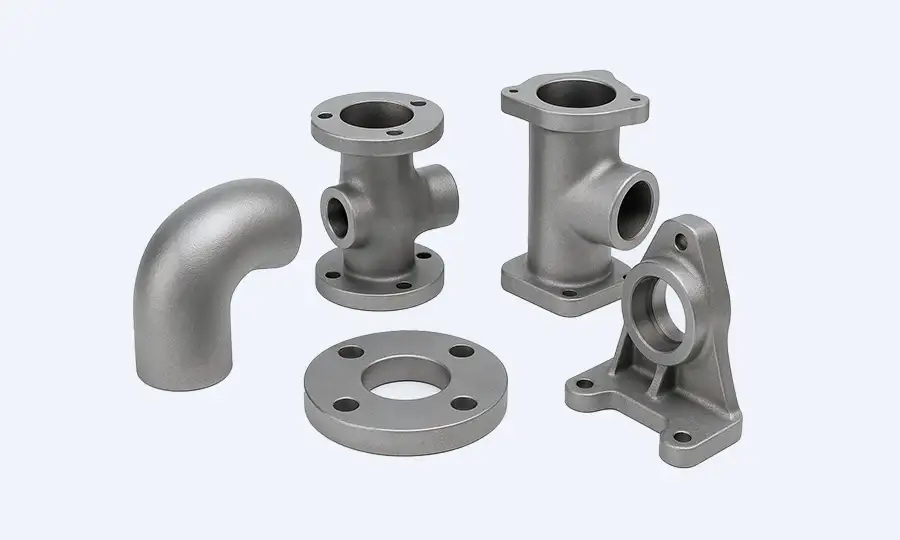
Low-carbon Steel Castings
- Carbon ratio: 0.04% - 0.30%.
- Grades: 1.6220, 1008, 1018, 1020, WCB, LCC.
- Superior weldability, toughness, and resistance to brittle fracture.
- Suitable for pipe fittings, valves, pumps, and general structural applications.
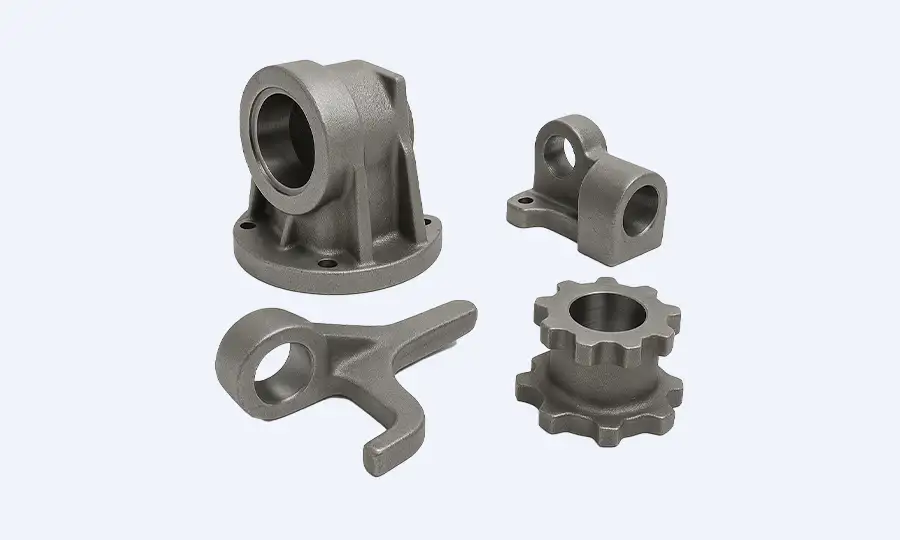
Medium-carbon Steel Castings
- Carbon ratio: 0.31% - 0.60%.
- Grades: 1035, 1045, 1055, 20Mn5.
- Higher strength, good wear resistance, and moderate machinability.
- Ideal for gearboxes, shafts, and heavy-duty machinery components.
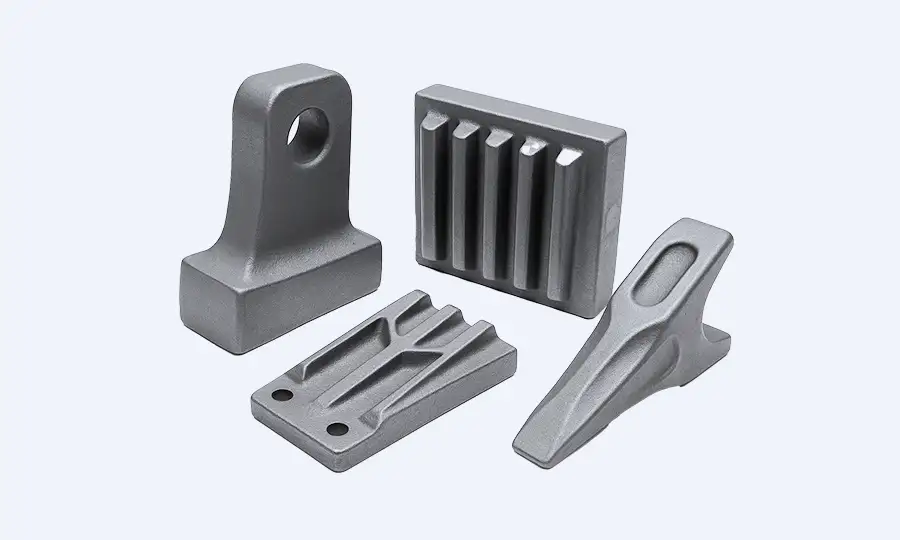
High-carbon Steel Castings
- Carbon ratio: 0.61% - 1.50%.
- Grades: 1075, 1080, 1095.
- High hardness, strength, and resistance to wear after heat treatment.
- Used in high-wear applications like automotive parts, cutting tools, and springs.
Chemical Composition of Common Carbon Steel Castings
The chemical composition of carbon steel castings impacts their strength, hardness, and machinability. Shown below is a breakdown of key elements and their typical compositions.
Type | Maximum Content of Elements | |||||||||
/ | C | Si | Mn | S | P | Residual Elements | ||||
Ni | Cr | Cu | Mo | V | ||||||
ZG200-400 | 0.2 | 0.5 | 0.8 | 0.04 | 0.3 | 0.35 | 0.3 | 0.2 | 0.05 | |
ZG230-450 | 0.3 | 0.5 | 0.9 | |||||||
ZG270-500 | 0.4 | 0.5 | ||||||||
ZG310-570 | 0.5 | 0.6 | ||||||||
ZC340-640 | 0.6 | 0.6 | ||||||||
Key Advantages of Carbon Steel Castings

High Comprehensive Mechanical Properties
Carbon steel castings offer excellent compressive and tensile strength, providing robust performance in demanding applications.

Good Weldability
Low carbon steel castings have enhanced weldability, making them well-suited for a variety of welding processes.

Design Flexibility
Carbon steel castings can be produced with larger wall thicknesses than gray cast iron, providing more flexibility in design.

Cost-effective Structural Solutions
Complex structures can be produced with a combination of casting and welding, facilitating easier production while maintaining strength and integrity.
Tailored Solutions with Timely Delivery
We deliver custom-cast carbon steel parts on time, from small batches to large runs. Please contact us!
Our Carbon Steel Casting Parts
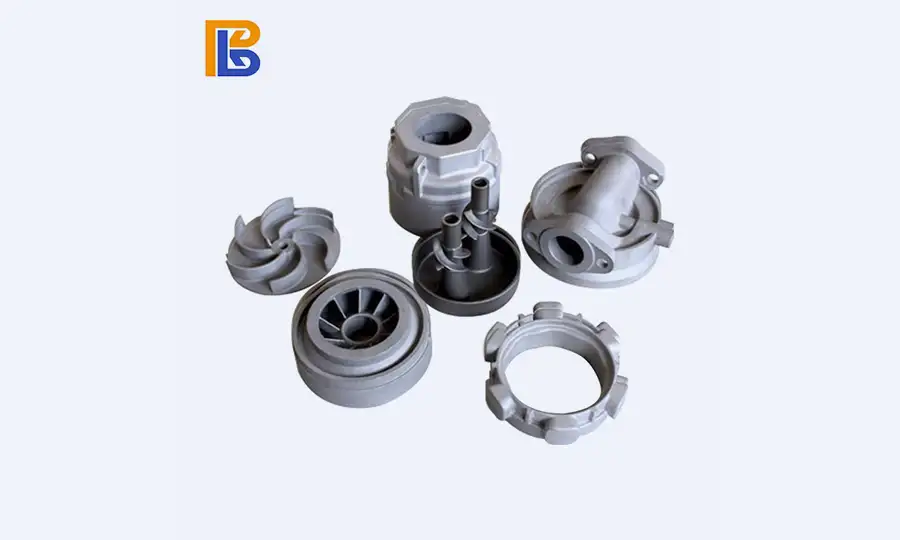
Carbon Steel Investment Castings
- Materials include Q235, Q345, 20#, 25#, 45#, A105.
- Can create complex shapes with fine details.
- Delivers strong resistance to wear and corrosion.
- Limits secondary machining, helping save time and costs.
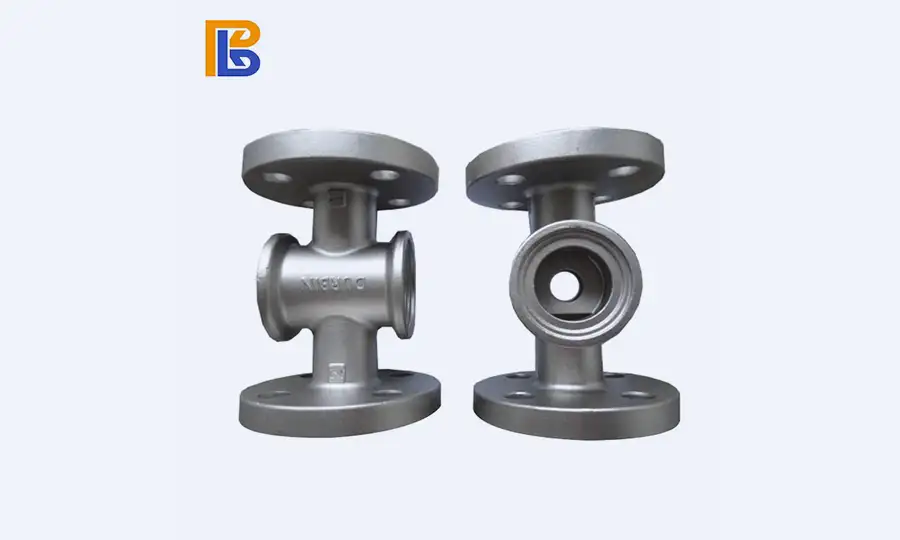
Cast Carbon Steel Valve
- Suitable for water, steam, oils, and corrosive media.
- Reduced flow resistance lowers energy consumption.
- Operates smoothly and is easy to open and close.
- Used in water, sewage, construction, and petroleum systems.
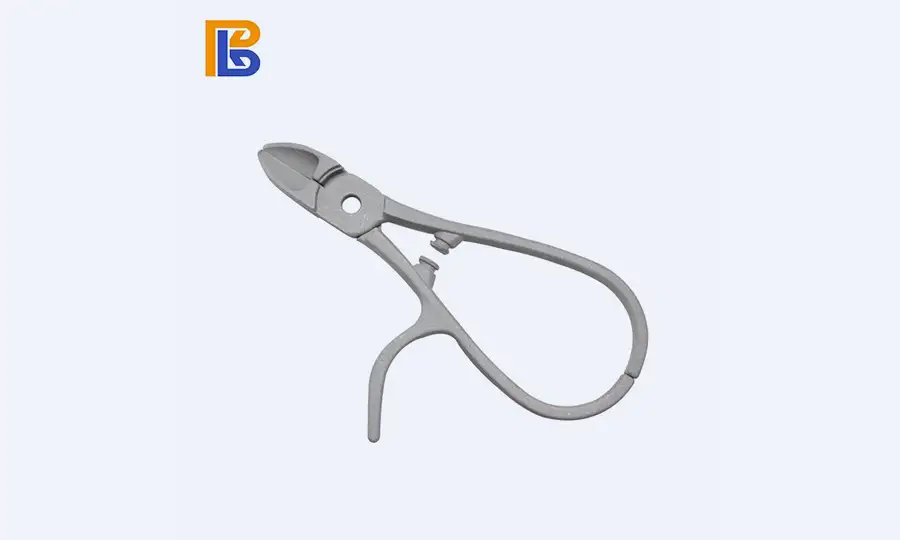
Surface-treated Carbon Steel Castings
- Hot-dip galvanizing offers outstanding protection against corrosion.
- Zinc plating enhances wear and environmental resistance.
- Chrome plating improves surface hardness and appearance.
- Polishing, anodizing, and black oxide improve durability.
Applications
With their strength, durability, and cost-effectiveness, carbon steel castings are extensively used in many industries. Common applications include:
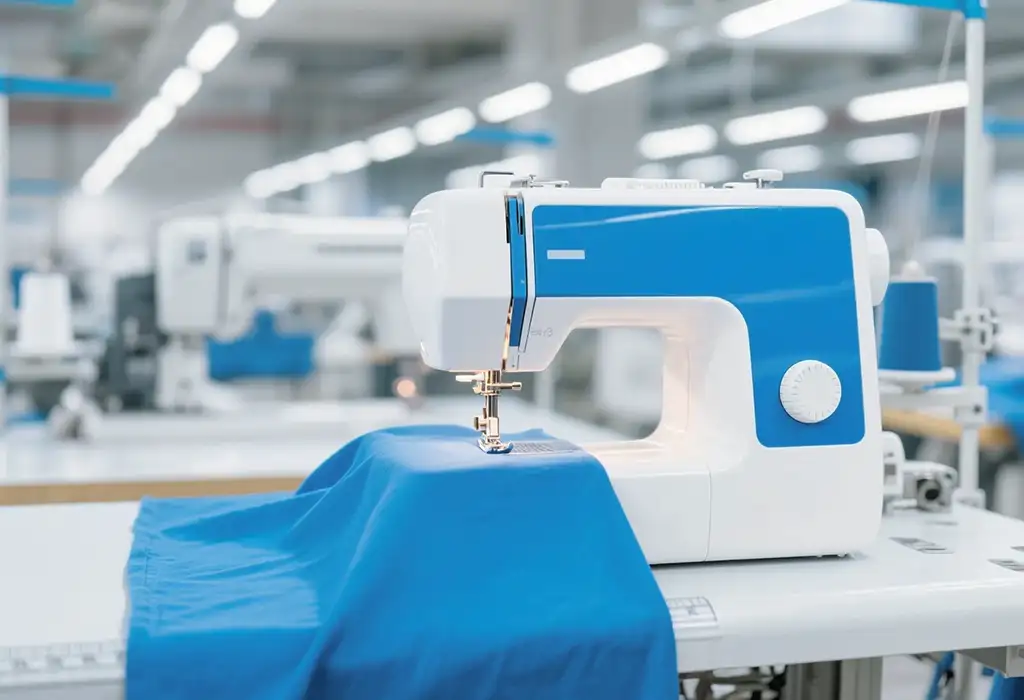
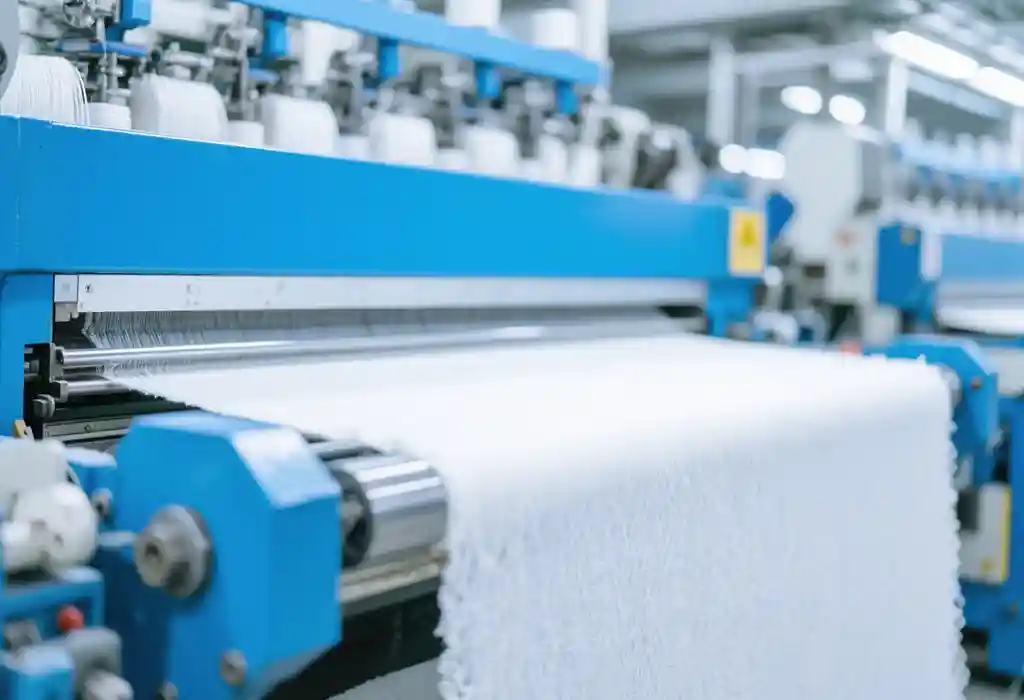
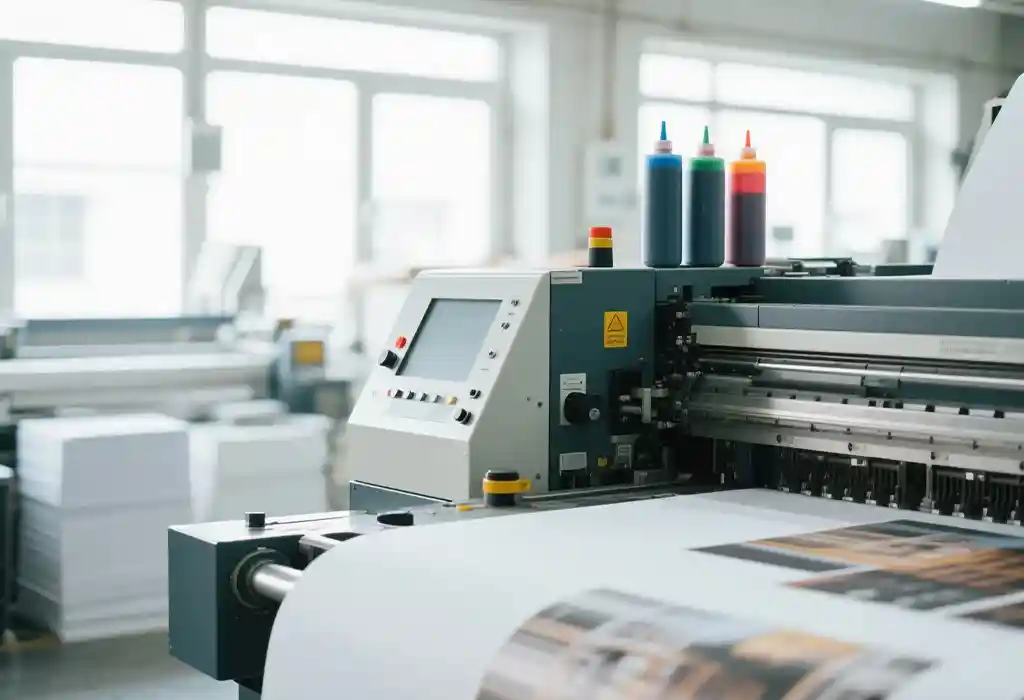
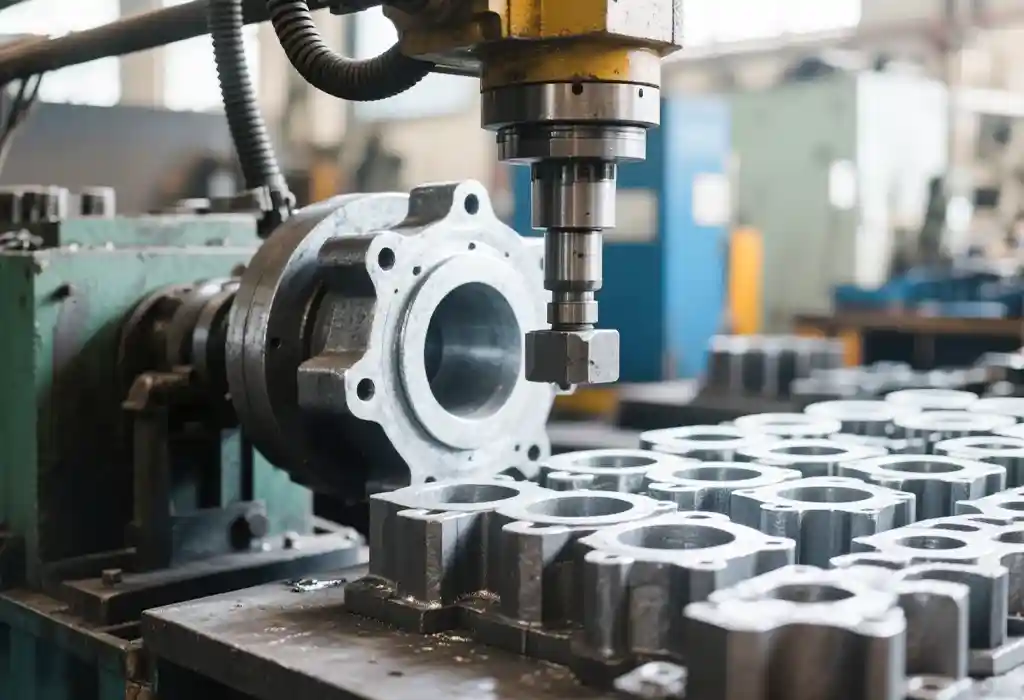
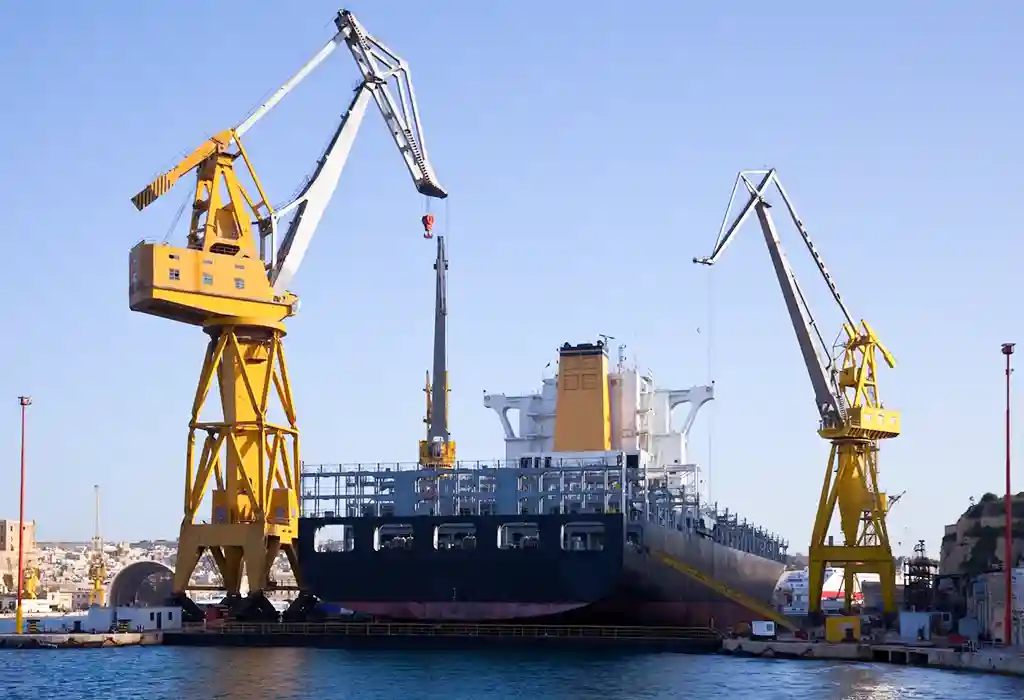

Sewing Industry
Carbon steel castings are utilized in sewing machinery for their durability and ability to withstand wear and tear during fabric processing.
Textiles
Used in textile machinery components, providing robust performance for operations such as spinning, weaving, and knitting.
Printing Industry
Carbon steel castings are employed in printing presses, offering resistance to abrasion and corrosion, ensuring long-lasting machine performance.
Hardware Manufacturing
In hardware production, these castings are used for creating components like tools, locks, and fittings, offering high strength and precision.
Shipbuilding
Carbon steel castings are used for parts like hulls, propellers, and structural components, thanks to corrosion resistance and ability to endure marine environments.
Gardening Equipment
Used in garden machinery such as lawnmowers and cultivators, where durability and impact resistance are crucial.
Contact Us Now
FAQs
Do you provide prototyping for carbon steel castings?
Yes, we provide prototyping services to evaluate designs and functionality before mass production, ensuring the final casting complies with all specifications and requirements.
What is the process for making carbon steel castings?
The process involves pattern making, molding, melting, and pouring molten steel, cooling, finishing, and inspecting the castings to ensure they meet specifications.
Can carbon steel castings be customized?
Yes, we offer custom carbon steel castings tailored to client specifications, including size, shape, material grade, and surface finish for specific industry needs.
What is the weight tolerance for carbon steel castings?
Our carbon steel castings have a weight tolerance of ±2%, ensuring that components meet the required specifications while maintaining strength and performance.
What surface treatments are available for carbon steel castings?
We offer various surface treatments such as hot-dip galvanizing, zinc plating, chrome plating, spray painting, and powder coating for corrosion resistance and aesthetic finishes.
What is the maximum temperature carbon steel castings can withstand?
Depending on the grade, carbon steel castings can generally endure temperatures up to 500°C, making them ideal for high-temperature uses such as engines and turbines.
How is quality controlled in carbon steel castings?
We apply rigorous quality control measures, including visual inspection, dimensional verification, material testing, and post-casting analysis, ensuring high consistency and performance.
What industries use carbon steel castings?
Industries like automotive, construction, mining, oil and gas, power generation, and manufacturing rely on carbon steel castings for durable, high-performance components.